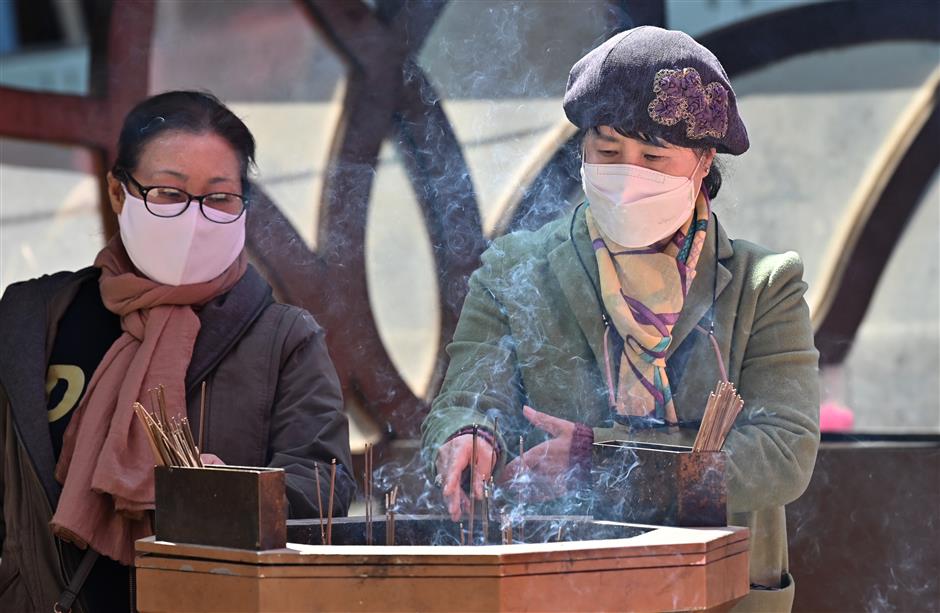S.Korea reports 76 more COVID-19 cases, 9,037 in total

A Buddhist follower wearing a face mask burns incense ahead of Buddha's birthday at Jogyesa Temple in Seoul on March 23, 2020.
South Korea reported 76 more cases of COVID-19 compared to 24 hours ago as of midnight Tuesday local time, raising the total number of infections to 9,037.
The newly confirmed cases stayed below 100 for the third straight day. Of the new cases, 20 were imported from abroad.
Nine more deaths were confirmed, lifting the death toll to 120. The total fatality rate came in at 1.33 percent.
A total of 341 more patients were discharged from quarantine after making full recovery, pulling up the combined number to 3,507. The number of recoveries kept surpassing new infections.
The Korea Centers for Disease Control and Prevention has updated the data once a day at 10am local time from March 10, after having announced it twice a day.
The virus infection soared for the past weeks, with 9,006 new cases reported from February 19 to March 23. The country has raised its four-tier virus alert to the highest "red" level.
The total number of infections in Daegu, about 300 km southeast of Seoul, and its surrounding North Gyeongsang province increased to 6,442 and 1,257 respectively. It accounted for about 85 percent of the total.
The numbers in Seoul and its adjacent Gyeonggi province came to 334 and 366 each.
Daegu became the epicenter of the viral spread here as the biggest cluster of infections was found in the metropolis with a 2.5 million population. Daegu has been designated by the government as a "special disaster zone."
The Daegu cluster was closely linked to the church services of a homegrown minor religious sect, called Sincheonji, in Daegu. Members of the sect are known to sit on the floor closely side by side during church services.
Since January 3, the country has tested more than 348,000 people, among whom 324,105 tested negative for the virus and 15,440 were being checked.
















